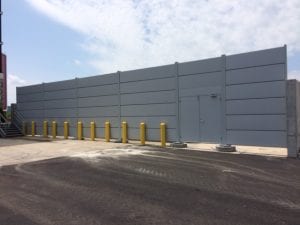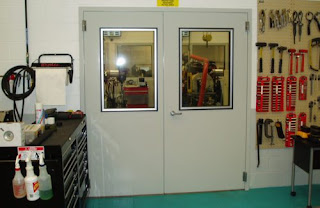Soundproofing materials required for an external generator enclosure
Making your own sound insulation panels can be a fun and satisfying chore. Most of the materials can be found conveniently at your local hardware or online store. Here is a list of the materials that can be utilized and some realities about them.
Mass loaded vinyl sound barrier
• Incredible noise reducer
• Frequently utilized on the outside of good sound insulation panels
• Is sturdy and durable
• Can be layered
• Cane be painted for a more embellished look
• When applied, gaps should be caulked or metal tape utilized for efficiency.
Medium Density Fibreboard
• Utilized for the walls of the enclosure
• Favoured over plywood as it permits less sound
• Some are moisture resistant
• Some are fire retardant
• Flexible and can be curved or shaped
• Cheap
• Heavy than plywood
• Allows possible carcinogens when cut
Closed cell Foam Matting
• Incredible for inner insulation
• Efficient noise barrier backed composites by blocking and absorbing noise
• Unlike open cell foam, it is water resistant
• Known to resist moulds
• Generally fire retardant
• Light in weight
• More robust and durable than open cell foam
• Some costly models come in a peel and stick design
Fiberglass Insulation
• Cheap in respect to closed cell mats
• Resistant to moisture
• Non-flammable and non-combustible
• Does not depreciate easily
• Efficiently controls the sound and temperature
• Should be tightly packed for the best sound barrier experience
• Irritating to the skin
Acoustical Tile or Foam
• Some absorb water
• Efficiently absorbs sound
• Fire resistant
Soundproof paint
• Blocks moisture
• Ensures pink noise control
• Not toxic
• Needs multiple coating to be efficient
• Flame retardant
• Might be hard to get




Comments
Post a Comment